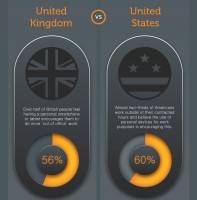July 15, 2013
Fall in sickness absence rates, but mental ill health still major cause
Mental health conditions are the single most widespread cause of long-term absence, with more than half (54 per cent) of employers citing non-work related stress, anxiety and depression as a cause of long-term absence. On a more positive note, according to the latest CBI/Pfizer Absence and Workplace Health Survey out today, overall absence from work in the UK has dropped to a new record low. The thirty-year survey found the average absence rate was 5.3 days in 2012, down from 6.5 days in 2010 – saving business £3 billion. However, the report, Fit for Purpose, found overall absences still cost the economy £14 billion a year, according to the ONS. Almost £1.8 billion was lost from an estimated one-in-eight sick days taken for non-genuine reasons, with one in five employers believing employees take “sickies” as an occasional perk. While absence rates in both the public and private sector were down to 6.9 (from 8.1) and 4.9 (from 5.9) days respectively, the report argues more than £1.2 billion a year could be saved if public sector absence levels were brought in line with the private sector average – on top of the £700 million saved from the fall since 2010.
























July 9, 2013
BIFM partnership with DWP may prove an ill-advised and short-lived union
by Simon Heath • Comment, Facilities management
(more…)